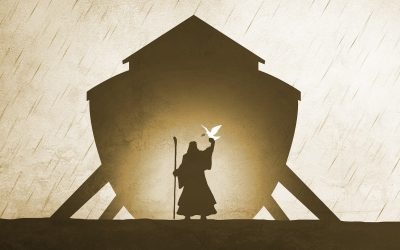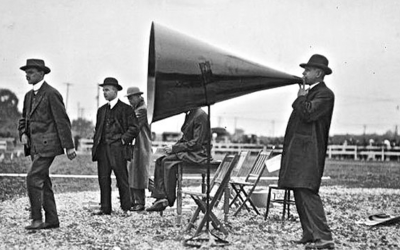WANTED: “Wisdom” of Old Soles
Preventing wisdom from taking early retirement in the church
I usually find myself having to explain why we spell our name “soles”—the bottom of our shoes—instead of “souls.” For the record, it is a play on words to highlight both the fact that I am forever dressed in my Converse Chucks and the fact that our ministry tagline is “walking God’s path together.” If you still don’t get it, just think about it.
This time in the title I enclosed “Wisdom” not “Soles” in quotation marks, not as an intentional misspelling, but to highlight the fact that as we are walking God’s path together, we are not meandering aimlessly. We are hacking through jungles and picking through brambles while trying to avoid life’s many potholes and pitfalls, wisely charting our way. Being a Christian is not a proverbial stroll through the park but a spiritual warfare survival course where the enemy uses live ammunition. That life course takes wisdom and a lot of it.
The Bible tells us that we are engaged in a spiritual battle (Ephesians 6:12) and that the devil is not only real but fully engaged as a prowling lion seeking to devour (1 Peter 5:8). Navigating life well requires wisdom, but not the folksy home-remedy type that takes the itch out of mosquito bites, nor the life-hacks kind of wisdom that washes fruit in dishwashers or fries eggs inside of onion slices. It requires industrial-strength spiritual wisdom that sees into the invisible world of how life works, what is good, what is right, and how to engage in an unseen battle against an unseen devil.
The church has been living this battle for millennia. Each generation carries on advancing God’s kingdom, making disciples, sharing the message of the Cross and the love of Jesus—living wisely in enemy territory. Or, as the Bible says, we “put on the whole armor of God, that you may be able to stand against the schemes of the devil” (Ephesians 6:11). That takes wisdom, and wisdom takes time and experience.
INTERGENERATIONAL WISDOM
Wisdom is not the sole possession of the elderly, but they seem to have a store of it to share with younger generations if allowed. People are intergenerational. It’s the way God made us. Families, communities, and societies have young and old with all ages in between. Have you ever wondered why the first thing we do when we go to church is to divide up by age only to reunite for lunch afterward? We create unnatural barriers to wisdom transfer within the church.
You may answer that we segregate by age at church to program and educate people in life-appropriate ways. We teach children in one way, teens another, adults another, singles yet another, and so on. We divide by life stage and affinity. It all happens because we tend to look at disciple-making through the lens of education and, therefore, “programming.” Of course, it makes sense to divide by age and affinity when we go to church if our goal is discipleship by content education.
What would it look like if disciple-making were to have less emphasis on an education program? What if the emphasis were on experience life-learning where every person in the intergenerational community affects others so that the entire community of believers grows in spiritual maturity? Would we still segregate our generations? I doubt it. Neither would we create artificial barriers to wisdom transfer. By the way, before dismissing the thought as naïve or impractical, remember that the Bible tells us that such is exactly how God designed the church to mature disciples.
“Rather, speaking the truth in love, we are to grow up in every way into him who is the head, into Christ, from whom the whole body, joined and held together by every joint with which it is equipped, when each part is working properly, makes the body grow so that it builds itself up in love.” (Ephesians 4:15-16 / ESV)
God made the church a participatory growth experience where every person has a part and is necessary for everyone else’s growth. He also gave everyone in the church spiritual gifts to help in the maturing process and the mission to make more disciples (Romans 12:3-8; 1 Corinthians 12:4-11).
If it takes everyone in the church collectively working together to make new followers of Jesus and grow them into maturity, then it seems more is involved than implementing an education program. This kind of learning cannot happen by only going to church on Sunday morning or even by adding Wednesday night (or youth group). This learning only happens as lives intersect in meaningful ways continually. Essentially, it requires a multigenerational community of believers who are in varying degrees involved in one another’s lives.
It isn’t possible to know everyone well. It is not possible to invite the whole Sunday congregation over for lunch or dinner in most cases. If your believing community is more than maybe twenty or thirty people, you will not know them well. We can still worship together in larger groups, but the issue is not the larger worship gatherings. The problem is that we have replaced the small intergenerational contact with larger programmed events and somehow convinced ourselves that we are nonetheless mass producing disciples. It is an American concept, but not a biblical one. It’s not possible.
FOLLOWING JESUS IS COUNTERINTUITIVE
Why?
Because following Jesus is counterintuitive to life so we need help and guides. Life and the wisdom it takes to live is more than content transfer, more than an education program, a workbook, or a Sunday teaching or sermon. It requires real-time decision making—choices to live the right way and think the way God thinks. It is counterintuitive to our natures. That’s why we needed saving in the first place. We’re defective at the core.
The Bible calls it “sin,” though our society often treats it as community dysfunction. So, we live in a world that believes if we “fix” the society, individuals will then find justice, peace, and freedom to act right and good. It’s a flawed worldview. The Bible goes the other way. The problem with the society is due to the fact that the individuals are flawed. Fix the individuals and then there is a hope of redeeming a society. Jesus redeems the individual heart and causes us to be different and then to think and act differently. Only then can we relate to one another in society differently, to know what is good and right. But it is counterintuitive to how we are, so it takes lots of wisdom to pilot this new path as Christians.
Much of what we think is right is wrong and vice-versa. By the way, that’s the whole point of the Sermon on the Mount—check it out (Matthew 5-7). To become more like Jesus—to grow as disciples—we need to gain wisdom. That takes time. It takes the Holy Spirit’s guidance. It takes the Bible’s direction. But it takes wise people to show us how they did it. Did what? How they walked like Jesus and how they tripped like us.
Wisdom does not come automatically with age. (Shall I name names? Not necessary.) But then again, neither will you find much wisdom in kindergarten. It takes time and experience, making lots of right choices and learning from wrong choices, to gain wisdom.
In other words, if we want to grow healthy disciples, we need an intergenerational community where older and younger interact. A vital ingredient of a healthy church is that there will be some people who have some wisdom. Hopefully, that trait will be in their leaders. Sadly, it’s often lacking. Sometimes we trade spiritual wisdom in our leaders for those who are good at running organizations—just saying.
WE ARE LOOKING FOR THE WISE
“Wisdom” of Old Soles seeks to equip the youngest generations to make disciples who follow Jesus in a world becoming more challenging. But we are not a youth ministry because it takes wisdom to make disciples and wisdom is best found in an intergenerational community.
Again, the aged do not have a monopoly on wisdom any more than youth have the market cornered on folly. But the mixture of age and youth tends to allow the people of God to function as the Lord intended in all of our gifts and with the right amount of experience so that the young benefit from the old and vice-versa. It’s how life works, plain and simple.
Perhaps with good intentions, we have segregated our church environments by age, but in so doing we have exacerbated the generational distances at a time when wisdom is most needed. It might not have such a negative impact if the church were to function organically throughout the week in smaller collectives—interconnected, touching in meaningful ways—but, if we continue to stress “church” as something we go to on Sunday or an organization to which we belong, then we will likely seal away our most precious resources of wisdom or condemn them to early retirement.
We need wise spiritual people especially in these days, and for that reason, “Wisdom” of Old Soles builds intergenerational disciple-making communities while it trains the next generations of disciples to follow Jesus and to lead into the future.
PERSONS OF PEACE AND PERSONS OF WISDOM
The 21st Century church has rediscovered a Luke 10 multiplication model for church growth where Jesus sent His disciples out in pairs to look for “persons of peace” through whom God’s kingdom work can advance. Here is not the place to discuss nor critique the model. But the “persons of peace” terminology is a helpful tool.
Luke records that a “son of peace” is someone on whom God’s peace rests through the prayer of the disciples and whose home becomes a kingdom outpost for the message, “The kingdom of God has come near to you” (Luke 10:6-9). It’s not a difficult application today to see such persons of peace as those who are open to the gospel and through whom others come to hear about and receive Jesus. Millions around the world have been coming to know the Lord through this strategy.
It makes good theological sense to pray and ask for the Spirit’s direction to send us to those among whom He is at work.
It also makes good theological sense to ask the Spirit for the necessary spiritual gifts that the church would be able to accomplish this mission of making disciples. And in this time of cultural darkness and spiritual folly, we pray particularly not just for “persons of peace” outside the church, but for “persons of wisdom” inside the church.
Ultimately, that gift of wisdom needs to be present among church leaders. It also seems that one of the distinguishing marks of what we call a “Cluster” and others might call a “local congregation,” “local body,” or “believing community,” is the presence of biblical leaders (Ephesians 4:11-13). The other two distinguishing marks are that it identifies itself as a Cluster (as opposed to a Bible study or home group), and that its members function together in their spiritual gifts to make new disciples and mature them. That is, they multiply.
Youth have boundless energy and optimism, and though God certainly gifts young Timothy’s as leaders, most of the time high school or college students do not have the life experience to shepherd congregations of God’s people. There is no insult intended. One does not know how to raise children or nurture marriage without having experienced it. That is also God’s point when He cautions that church leaders must know how to manage their own households and children well before doing so in the church (1 Timothy 3:4-5).
Youth ministries have had undeniably fruitful campus outreach. It would be wrong or hurtful to claim otherwise. God uses these ministries mightily. Some of these campus ministries are outreaches of local congregations. Others encourage students to become part of local congregations and do not attempt to replace them.
“Wisdom” of Old Soles is not attempting to replace (or criticize) the campus ministry models. Perhaps the distinction can best be seen in that the Clusters we plant are the church—intergenerational local bodies of Jesus that make and grow disciples. We are not a parachurch ministry. That’s why I also say that even though we train the next generations to make disciples, we are not a youth ministry. We are the church. And it takes a lot of wisdom to understand that, and to accomplish it.
A NEW TESTAMENT THING
The church is becoming more decentralized. It’s becoming a network of networks, less top-down, less organizational, more organic. This manner of church is not a new thing. It’s a New Testament thing in a new way that speaks the native language of the 21st Century.
How so?
It’s a relational change at its core. And that happened because the technology changed how we communicate. And that happened because of the dual inventions of the affordable microchip and the internet.
It’s happened before. The printing press changed how we communicate and realigned the social structures of the Middle Ages. Television did the same thing in the 20th Century.
Communication changes how people relate to one another. Just look at the Tower of Babel in Genesis 11. God changed our communication by diversifying our languages to scatter us across the planet.
The internet in many ways reverses Babel. Instead of scattering with many languages, we now unite speaking the same language of globalism. And by the way, according to Genesis 11, that’s not a good thing as it also brings with it an increase in evil.
But the technology and communication also brought realigned relationships that are more horizontal than vertical. Global companies were quick to realize that. Instead of top-down headquarters in one location, they diversified and created semi-autonomous or autonomous units around the world.
In effect, the technology changed communication, which changed relationships, which is creating a world of networks of networks. And that includes the church, the greatest human diversified network of them all—every tribe, tongue, nation, and language, but yet one church.
Our top-down church structures are becoming outmoded and outdated, though old power structures are usually slow and hard to fall. In some cases it takes crises, or in the case of the church, persecution. But if you look at the global trend, what has been emerging is a world of networks.
What it all means is that the church is becoming smaller in order to become larger. That also means that every small unit needs to be the church in the way that every strand of DNA needs to have the coding for the entire body. Networks of networks will only grow a healthy church when all those individual networks (Clusters, church congregations, local bodies) are the church. They need to see themselves that way, they need to function in their spiritual gifts to multiply, and they need to continually raise up biblical leaders.
It is not practical nor possible to have that kind of decentralized church network without being intergenerational, mostly because of the great need for wisdom. As the church grows, as the networks (Clusters) multiply, they will be multiethnic and multicultural because the society is that way. But the channel for wisdom comes from the reality that the church is multigenerational. That is why we write WANTED: “Wisdom” of Old Soles.






